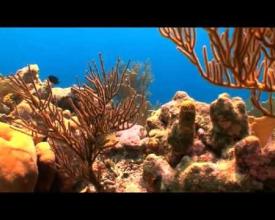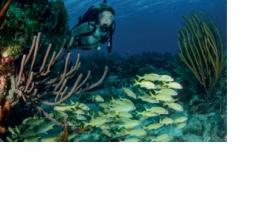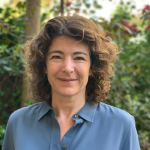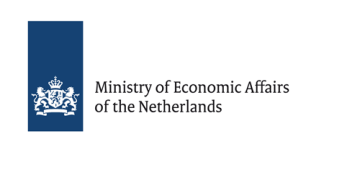
of Bonaire
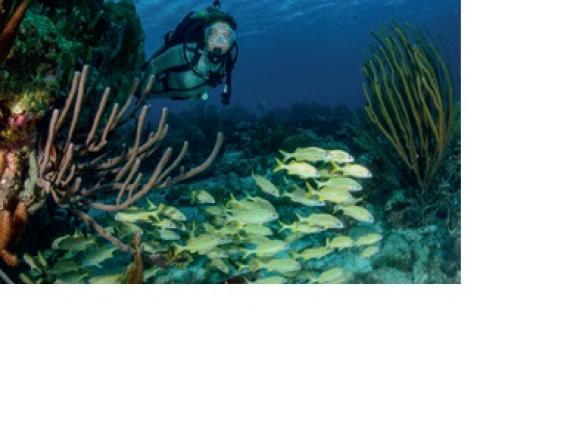
Challenges for decision-makers are to demonstrate how economically profitable investments are less economically beneficial when including social and ecological impact. Economic values of ecosystem services can justify funding for nature conservation and mobilize political support.
Context
Challenges addressed
- Developmental pressures challenge the physical and economic security of small island societies.
- Understanding how nature contributes to a small island economy and human development.
- Financial flows versus economic value.
- Discussion on intrinsic value of nature.
Location
Process
Summary of the process
Developmental pressures in a context of global environmental change and economic liberalization challenge the physical and economic security of the islands of the Caribbean Netherlands. This requires an integrated, multi-scale research supporting the development of sustainable economies. The focus was to value nature through the perspective of various stakeholders such as local residents, visitors, tourist industry and residents in the Netherlands’ mainland. The study concludes that benefits of nature on the islands are not only enjoyed by local stakeholders but also by citizens in the mainland of the Netherlands. The valuation results are used to raise awareness, support decision-making, and develop sustainable financing mechanisms and serve as input for spatial planning. The results and their input in scenarios answer questions related to current environmental management policies. Stakeholders provide input along the way. By increasing the information and transparency on issues that are related to the natural environment of the Caribbean Netherlands more equitable decisions can be made.
Building Blocks
Scoping and setting a policy question
The scoping includes considering the context and identifying a clear policy question at the outset of the ecosystem service valuation. In addition you need to determine the appropriate level of stakeholder engagement, the suitable valuation method, the level of accuracy required, data needs, costs, scale and time constraints.
Enabling factors
- Knowledge and consideration of the local context
Lesson learned
- Good preparation is key for a successful project
Understanding what ecosystem services are
Through a workshop stakeholders start to understand how powerful valuing ecosystem services can be as a tool to address relevant policy decisions. Exercises during the workshop based on local cases generate information about local ecosystems, ecosystem services, beneficiaries, stakeholders and issues. Participants start to understand how they can use this tool to create important insights for all-inclusive decision-making. Moreover, during the research, continue to communicate with all stakeholders through newspapers and radio.
Enabling factors
- Make sure the workshop contains a representation of all beneficiaries
- Budget to hold the workshop (at least two days including lunch)
- Stakeholders need to have some degree of interest and capacity to understand the material
Lesson learned
- High-level policy advisors do not have enough time to take part in workshop. They need to get involved through personal meetings
- Environmentalists are not economists and vice versa
- Be very interactive and keep repeating the message
Ecosystem service valuation following the TEEB framework
Conducting surveys with tourists or residents creates understanding of local issues, such as waste management, coastal development as well as insight in usage of ecosystem service. Moreover, a willingness-to-pay (WTP) for nature conservation can be established through Choice Experiments. Valuation of priority ecosystem goods and services, also by other means then WTP, are combined to arrive at an estimate of the Total Economic Value (TEV) following the TEEB framework. Results are used in applications, such as scenarios, valuemaps and decision support systems.
Enabling factors
- Primary data collection through surveys (WTP)
- Quality check of values, discount rates and sensitivity analysis with scientific experts
- Existing and proven methodology (TEEB)
- Involved stakeholders
- Budget to realize surveys (around 400 to 800 questionnaires)
Lesson learned
- Depending on the available data certain methods can be used and others not
- Primary data collection provides better and more usable results
- Be very clear on the difference between financial value and socio-economic value
- There is always uncertainty
- Deal with lack of solid data by collecting data yourself, make assumptions or qualitatively describe, what you can not value
Value scenarios for cost of (in)action
The results of the ecosystem services valuation can be used in applications to raise awareness, support decision-making, develop sustainable financing mechanisms, for spatial planning and for damage assessments. With scenarios, the study can assess certain policy issues, such as the economic loss if natural assets are damaged by, for example, sewage run-off. The applications answer questions relating to current environmental management issues on the islands. Stakeholders and local experts provided input determining the most relevant management issues to be used in local relevant scenarios.
Enabling factors
- Interdisciplinary team of experts including statisticians, GIS specialists, ecologists and economists
- Ability to relate the results to different scenarios
- Work on existing policy and or decision making issues
Lesson learned
- Insights from scenarios gives you an indication not an absolute figure
- It is about awareness raising and relative comparison
- Visual applications are very strong
Communication about ecosystem service values
Different communication tools increase the audience and options to share information and deliver transparency on issues that related to natural resources in order to make more equitable decisions and in order to get support from the different stakeholders, such as the residents, the private sector and the local governments.
Enabling factors
- Understand who your target group is and compile the proper information out of all your results, specific to target your person(s)
- Communication budget
- Creative team to make results easy accessible and attractive
- Have specific meeting to transfer information from your research
Lesson learned
- It takes a long time before the message gets across
- Ecosystem values is a complex message that needs to be translated into concise day-to-day information
Impacts
- State Secretary showcases this study to demonstrate important link between nature and economic prosperity
- Nature policy plans mainstream the economics of ecosystem services benefitting a wide range of stakeholders
- Local government acted on scenarios initiating goat control measures and extended costs benefits analysis determined how to utilize wastewater sustainably
- Insight in willingness of Dutch mainland citizen to pay for nature conservation was used to secure 7.5 million Euros for nature conservation
- Close cooperation between nature ngo's and tourism sector
- Value map supports intended extension of Terrestrial Park
Beneficiaries
- Nature conservation organizations
- Nature and environmental government departments
- Local and national policy and decision-makers
- Tourism industry
- Local communities
- Fisherfolk
Sustainable Development Goals
Story
“Intuitively , many people were already aware of the fact that nature plays an important role,” says Pieter van Beukering, Associate Professor at VU University Amsterdam. “But now that they see the real number, and they see the real importance, the urgency of doing something – more than we currently do – has increased and people have become more aware of the importance to protect our nature and improve its quality as soon as possible.”

